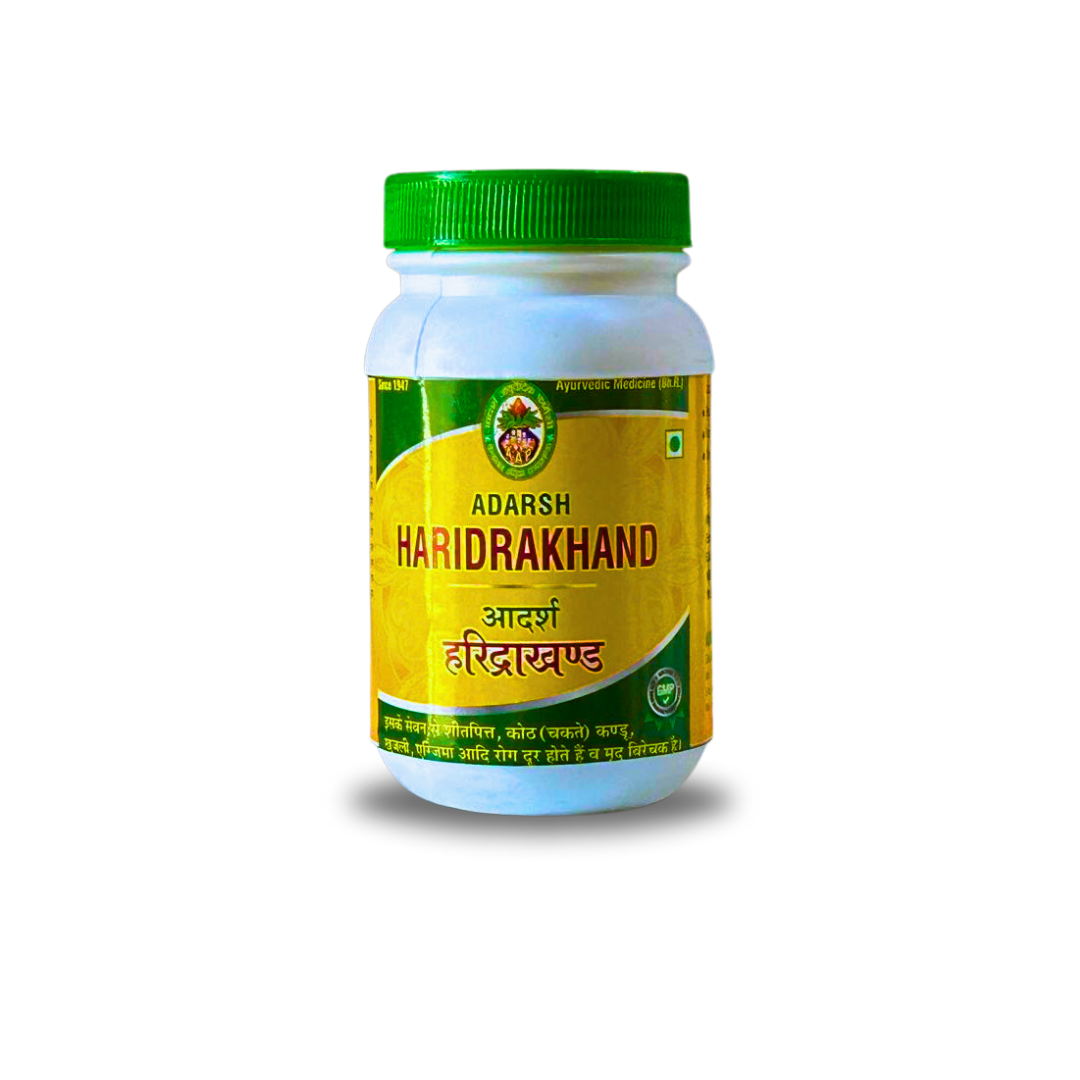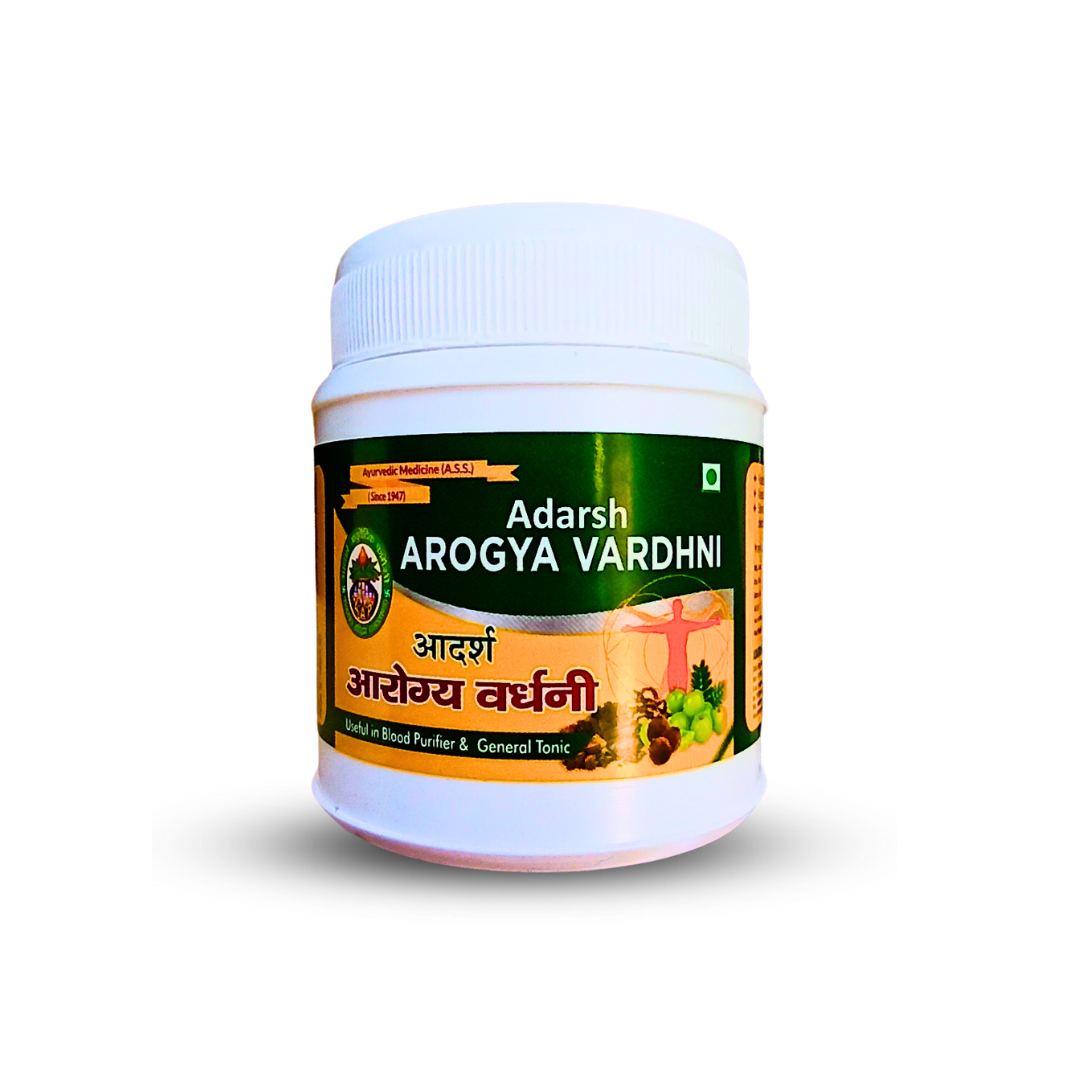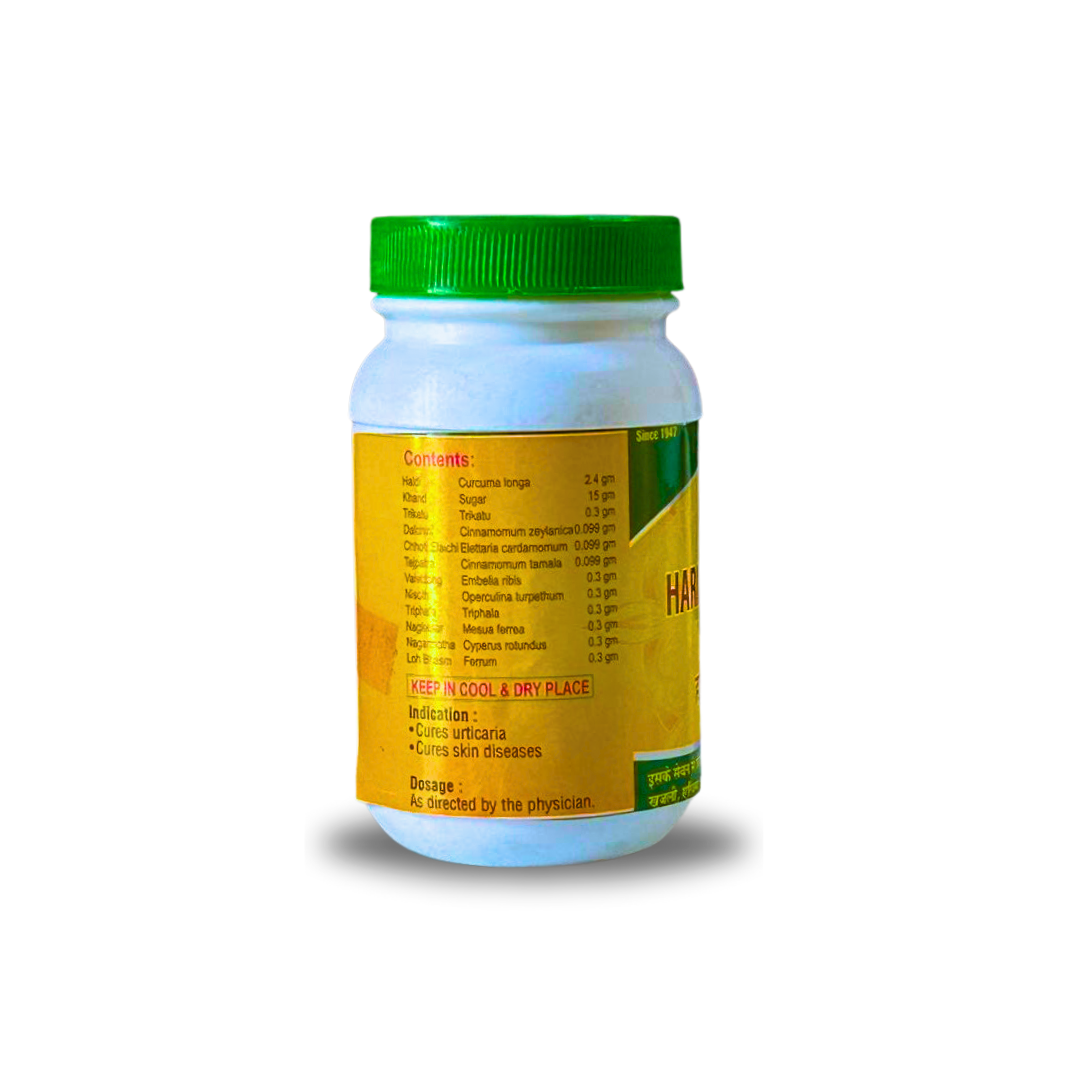Chyawanprash Special
₹200 – ₹400
Chyawanprash (also spelled as “Chyavanprash” or “Chavanprash”) is a traditional Ayurvedic herbal formulation that has been used for thousands of years in India. It is a jam-like paste made from a variety of herbs, fruits, and spices that are mixed with honey, ghee, and sugar.
Some of the key ingredients in Chyawanprash include amla (Indian gooseberry), ashwagandha, guduchi, licorice, and shatavari. These ingredients are believed to have a range of health benefits, such as improving cognitive function, reducing inflammation, and promoting healthy aging.
- Delivery & Return
Delivery
We ship to all over the world. All orders are shipped with a UPS tracking number. Always free shipping for orders over 1000. During sale periods and promotions the delivery time may be longer than normal.Return
Adarsh Ayurvedic Pharmacy will accept exchanges and returns of undamaged box within 30 days of the date of purchase (14 days during the sales period), on presentation of the original till receipt at any store where the corresponding collection is available within the country of purchase. Your return will usually be processed within a week to a week and a half. We’ll send you a Return Notification email to notify you once the return has been completed. Please allow 1-3 business days for refunds to be received to the original form of payment once the return has been processed.Help
Give us a shout if you have any other questions and/or concerns. Email: aapdeepak.hdr@gmail.com Phone: 9897902760
Chyawanprash (also spelled as “Chyavanprash” or “Chavanprash”) is a traditional Ayurvedic herbal formulation that has been used for thousands of years in India. It is a jam-like paste made from a variety of herbs, fruits, and spices that are mixed with honey, ghee, and sugar.
Some of the key ingredients in Chyawanprash include amla (Indian gooseberry), ashwagandha, guduchi, licorice, and shatavari. These ingredients are believed to have a range of health benefits, such as improving cognitive function, reducing inflammation, and promoting healthy aging.
Chyawanprash is typically taken in small doses, usually one to two teaspoons a day, either on its own or mixed with milk or water. It is generally considered safe for most people, although it is always a good idea to consult with a healthcare professional before taking any new dietary supplements.
Chyawanprash is believed to have numerous health benefits and is commonly used as a dietary supplement to promote overall health and well-being. It is rich in antioxidants and other bioactive compounds that may help boost the immune system, improve digestion, and support cardiovascular health.
buy 10 get one free.
Selflife: 3 years
| Weight | N/A |
|---|---|
| Dimensions | 14 × 12.5 × 8.5 cm |
| Weight | 1000gm, 500gm |
Based on 0 reviews
|
|
|
0% |
|
|
|
0% |
|
|
|
0% |
|
|
|
0% |
|
|
|
0% |
Only logged in customers who have purchased this product may leave a review.
Related Products
“Arogyavardhini” is an Ayurvedic herbal formulation that is traditionally used to promote overall health and well-being. It is believed to help support liver function, improve digestion, and boost the immune system.
The ingredients of Arogyavardhini of this specific formulation typically includes a combination of herbs and minerals such as triphala (a blend of three fruits), kutki (a bitter herb), guggulu (a resin), shilajit (a mineral pitch), Abarak bhasam , Loh Bhasam and others.
The unique formulation of Adarsh Aroghyavardhni has potency to burn fat and purify blood .
As with any herbal supplement, it is important to consult with a healthcare professional before taking Arogyavardhini, especially if you have any pre-existing medical conditions or are taking any medications.
Key Component:
1. Triphala: A blend of three fruits – amla, haritaki, and bibhitaki – that are known for their antioxidant and anti-inflammatory properties. Triphala is commonly used in Ayurveda to support digestion and overall health.
2. Kutki: A bitter herb that is commonly used in Ayurveda to support liver health and improve digestion. Kutki is believed to have anti-inflammatory, antiviral, and antioxidant properties.
Bhringraj tail is typically applied to the scalp and hair, left for a period of time (usually 30 minutes to several hours), and then washed out with shampoo. The frequency and duration of use can vary based on individual needs and the guidance of a qualified healthcare professional. It is important to note that like all herbal remedies, Bhringraj tail may cause allergic reactions or other side effects in some individuals, and should be used with caution.
Bhringraj tail is an Ayurvedic herbal oil made from Bhringraj (Eclipta alba), a plant known for its hair growth promoting properties. The oil is believed to help nourish and strengthen the hair, prevent hair loss, and promote the growth of healthy hair.
Eladi Vati is typically taken orally, and the recommended dosage and duration of use may vary depending on the individual’s condition and overall health. It is important to consult with a qualified Ayurvedic practitioner before using this or any other herbal remedy.
Although Eladi Vati is generally considered safe when taken as directed, some individuals may experience side effects such as stomach upset, allergic reactions, or interactions with other medications. It is important to speak with a healthcare provider before using this or any other herbal remedy, especially if you are pregnant, breastfeeding, or have any underlying health conditions.
Out of stock
Varunadi Kwath is typically prepared by boiling the herbal mixture in water and then straining the decoction before consuming. It is important to note that like all herbal remedies, Varunadi Kwath should be taken under the guidance of a qualified healthcare professional, as it may interact with certain medications or have potential side effects in some individuals.
Varunadi Kwath is an Ayurvedic herbal decoction made from a blend of several herbs, including Varuna (Crataeva nurvala), Gokshura (Tribulus terrestris), and Punarnava (Boerhavia diffusa).
Basant Kusumakar Ras is believed to work by regulating blood sugar levels, improving digestion, and strengthening the immune system. It is also used to treat urinary tract infections, liver disorders, and pancreatitis. However, it is important to note that Basant Kusumakar Ras should only be taken under the guidance of a qualified Ayurvedic practitioner, as it may have some side effects and interactions with other medications.
It is a herbo-mineral formulation that contains various natural ingredients, including Swarna Bhasma (gold ash), Rajat Bhasma (silver ash), Vanga Bhasma (tin ash), and other herbs such as Haritaki (Terminalia chebula), Bibhitaki (Terminalia bellirica), Amalaki (Emblica officinalis), Shuddha Shilajit (purified asphaltum), and Guggulu (Commiphora mukul).
Badam Pak is made by grinding almonds into a fine powder and mixing it with sugar, ghee (clarified butter), and a variety of other herbs and spices, such as saffron, cardamom, and cinnamon. The ingredients are then cooked together over low heat until they form a thick paste.
According to Ayurvedic tradition, Badam Pak is believed to have a nourishing effect on the brain and nervous system, as well as to improve digestion and support overall vitality. It is also believed to have a calming effect on the mind, making it a popular remedy for stress and anxiety.
Ashwagandha Ghan is typically taken orally in liquid form, and the dosage and duration of treatment may vary depending on the individual’s needs and the practitioner’s recommendations. It is important to consult with a qualified Ayurvedic practitioner before using Ashwagandha Ghan, especially if you have a history of medical conditions or are currently taking any medications. Additionally, it is important to be aware of potential side effects and contraindications before using any herbal supplement.
The primary active compounds in Ashwagandha Ghan include withanolides, alkaloids, and flavonoids, which are believed to have adaptogenic, anti-inflammatory, and antioxidant properties. Ashwagandha Ghan is commonly used in Ayurvedic medicine for reducing stress and anxiety, supporting healthy immune function, and promoting overall vitality and wellness.
Haridrakhand (also spelled as Haridra Khanda) is an Ayurvedic herbal formulation that is commonly used in traditional Indian medicine. It is a powdered mixture of various herbs and spices, with turmeric (haridra in Sanskrit) being the primary ingredient.
Some of the key ingredients in Haridrakhand include turmeric, ginger, black pepper, cardamom, cinnamon, and honey. These ingredients are believed to have a range of health benefits, such as reducing inflammation, improving digestion, boosting the immune system, and promoting healthy skin.
Swas Chintamani Ras (also spelled as Swas Kas Chintamani Ras) is a traditional Ayurvedic medicine that is used to treat respiratory disorders, such as asthma, bronchitis, and cough. It is typically made from a combination of minerals such as purified mercury, sulfur, and mica, along with herbs like vasa, yashtimadhu, and pippali.
However, it’s important to note that the use of Ayurvedic medicines should be done under the guidance of a qualified Ayurvedic practitioner, as they can be potentially harmful if not used properly. Additionally, the safety and efficacy of these medicines have not been evaluated by the FDA, so caution should be exercised when using them.
Swas Chintamani Ras (also spelled as Swas Kas Chintamani Ras) is a traditional Ayurvedic medicine that is used to treat respiratory disorders, such as asthma, bronchitis, and cough. It is typically made from a combination of minerals such as purified mercury, sulfur, and mica, along with herbs like vasa, yashtimadhu, and pippali.
However, it’s important to note that the use of Ayurvedic medicines should be done under the guidance of a qualified Ayurvedic practitioner, as they can be potentially harmful if not used properly. Additionally, the safety and efficacy of these medicines have not been evaluated by the FDA, so caution should be exercised when using them.
According to Ayurveda, Khadiradi Vati is used to balance the Kapha and Pitta doshas in the body. It is commonly used for the treatment of dental problems such as toothache, gingivitis, and bad breath. It is also used to improve digestion and treat stomach disorders.
Khadiradi Vati is known for its anti-inflammatory and antibacterial properties. It helps in reducing inflammation and pain in the gums, and also helps in killing harmful bacteria in the mouth. It is also beneficial for treating skin disorders like acne and eczema.
Marichiyadi Tail is typically applied topically to the affected area and gently massaged into the skin. The frequency and duration of use can vary based on individual needs and the guidance of a qualified healthcare professional. It is important to note that like all herbal remedies, Marichiyadi Tail may cause allergic reactions or other side effects in some individuals, and should be used with caution.
Marichiyadi Tail is an Ayurvedic herbal oil that is made from a blend of several herbs, including Marich (Black pepper), Ajwain (Trachyspermum ammi), and Karpura (Camphor). This oil is commonly used in Ayurvedic medicine for the treatment of joint pain, muscle pain, and stiffness.
Dashmool Kwath is an Ayurvedic herbal decoction made from a blend of ten herbs, which include Bilva (Aegle marmelos), Agnimantha (Premna integrifolia), and Shyonaka (Oroxylum indicum). The name Dashmool means ‘ten roots’ or ‘ten herbs,’ and the combination of these herbs is believed to have a synergistic effect and offer a wide range of potential health benefits.
According to Ayurvedic principles, Dashmool Kwath is believed to help balance the three doshas – Vata, Pitta, and Kapha, and promote overall health and well-being. It is commonly used to support the respiratory system, improve digestion, and relieve stress and anxiety.
































Reviews
There are no reviews yet.